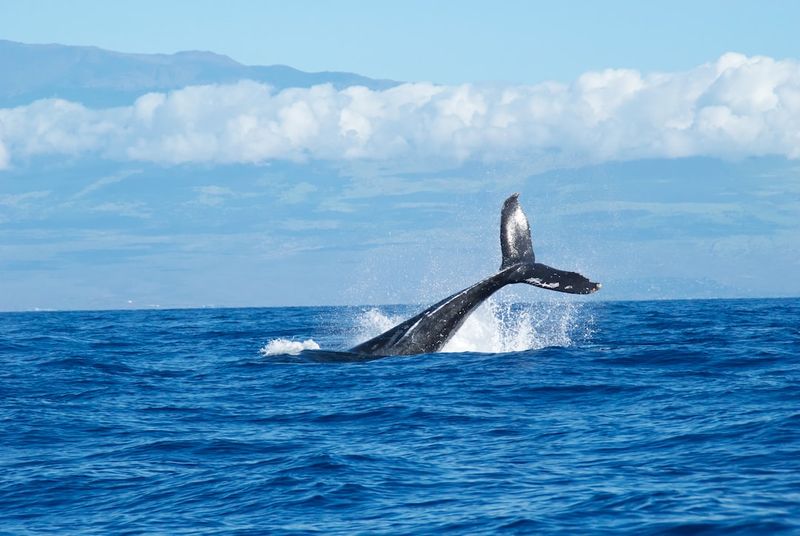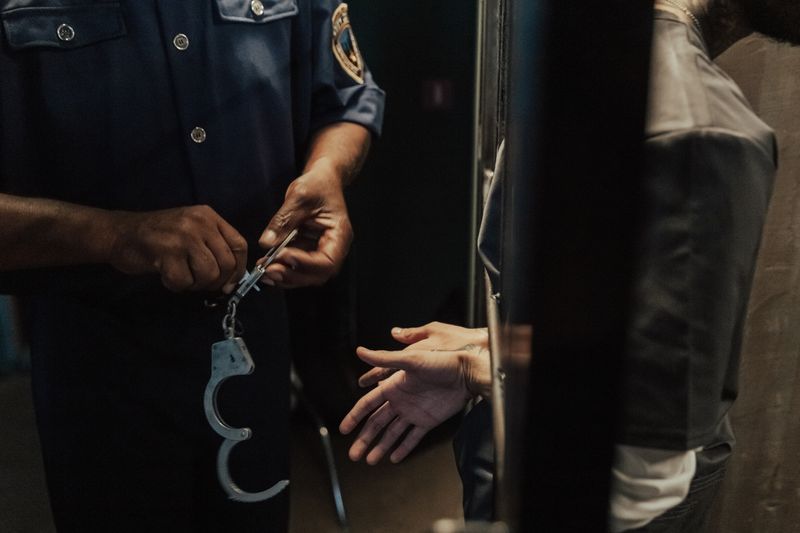Dozens of pilot whales strand themselves on WA beach, shark alert issued
By 9News Staff | 9:49pm Jul 25, 2023
As many as 70 pilot whales have stranded themselves on a beach in Western Australia, prompting a shark alert for the area as authorities grapple with the tragic scene. The mammals were spotted earlier today in an unusual clustering 150 metres off Cheynes Beach, about 60 kilometres east of Albany. Later this afternoon, the whales started swimming onto the sand, beating their tails, flailing around, and lining up side by side.
Emergency Meetings and Shark Alert
Experts are holding emergency meetings after as many as 70 pilot whales have stranded themselves on a beach in Western Australia. A shark alert has been issued for Cheynes Beach due to the mass stranding. The state government’s Shark Smart advises that “it is possible dead and injured animals will act as an attractant that could lead to sharks coming close in to the shore along this stretch of coast.” While it’s not uncommon for sharks to be present off the Western Australian coast throughout the year, people should exercise additional caution. The Department of Primary Industries and Regional Development, along with other agencies, is monitoring the situation and providing advice to relevant authorities. People are urged to take additional caution in the area, adhere to beach closures, and stay informed.
Unusual Behavior and Response
The behavior of the whales before they were beached has puzzled experts and captivated both locals and tourists. Joanne Marsh from Cheynes Beach Caravan Park described how it initially looked like the whales were “caught in a big net.” She stated, “It was really incredible, we didn’t know what we were looking at to start off with. Then when we zoomed in on the photo that we first took, we realized it was a lot of small whales all grouped together, and we’ve never seen anything like this before.”
Some visitors made the trip to see the whales, and authorities tracking their behavior initially thought it was not cause for concern. John Edwards from the Department of Biodiversity, Conservation, and Attractions said, “It’s a very unusual thing that we’re seeing, we haven’t seen a lot of it before. This morning when we saw them, they were in a tight circle and they were all facing inward. We don’t think it’s automatically a stranding behavior but clearly anytime we get whales that come close to the shore, we keep an eye on it.”
Priority of Safety
The Department of Biodiversity, Conservation, and Attractions (DBCA) is leading the response and managing the incident. A spokesperson emphasized that the safety of the public and the whales are their main priority, urging members of the public not to approach the beach. Volunteers are asked not to go to the beach tonight but instead register with the DCBA to provide assistance and support.
Philosophical Discussion: Nature’s Mysteries
The stranding of pilot whales raises questions about the complexities of nature and the mysteries that lie within it. The unusual behavior exhibited by these whales before they became stranded showcases the vastness of our natural world and highlights the limited knowledge we have about the behaviors and motivations of these magnificent creatures. Despite significant scientific advancements, there remains much to learn and understand about the intricacies of marine life.
Events such as this serve as a reminder of the importance of ecological conservation and the need to protect our oceans and their inhabitants. As humans, we must continue to expand our knowledge and strive towards better conservation practices to ensure the survival of these incredible species and maintain the delicate balance of our ecosystems.
Editorial: Balancing Conservation and Tourism
The stranding of pilot whales also brings up the ongoing debate about the impact of tourism on wildlife and their habitats. While it is undoubtedly captivating for visitors to witness the beauty of these animals up close, it is crucial to strike a balance between the enjoyment of tourism activities and the conservation of the natural environment.
In instances where unusual behaviors are observed, it is vital for authorities and tourists alike to act responsibly and follow guidelines set forth by conservation organizations. This includes maintaining a safe distance, refraining from interfering with the animals, and reporting any concerning behaviors to the appropriate authorities.
Local businesses that rely on tourism must also prioritize sustainable practices and educate their customers about the importance of responsible wildlife viewing. By promoting ethical and environmentally conscious tourism, we can minimize our impact on fragile ecosystems while still providing enriching experiences for visitors.
Advice: Supporting Conservation Efforts
For individuals who wish to contribute to the conservation efforts following this whale stranding, there are several ways to make a difference. Firstly, supporting organizations such as the Department of Biodiversity, Conservation, and Attractions through volunteering or making donations can help fund research, rescue, and conservation initiatives.
Furthermore, raising awareness about marine conservation issues is crucial. By spreading information through social media, organizing community events, or engaging in discussions, individuals can encourage others to take an active role in protecting our oceans and the incredible creatures that inhabit them.
Ultimately, the stranding of pilot whales is a poignant reminder of the fragility and mystery of our natural world. It is up to us as individuals and as a society to ensure that future generations have the opportunity to witness the awe-inspiring beauty of these creatures in their natural habitat.

<< photo by Andreas Dress >>
The image is for illustrative purposes only and does not depict the actual situation.




